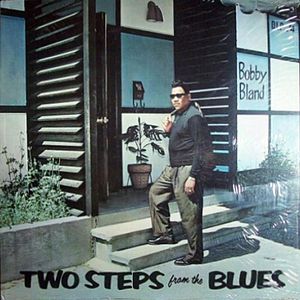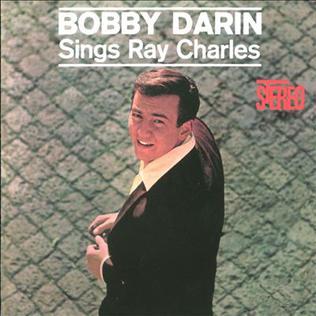
Ray Charles Robinson Sr. was an American singer, songwriter, pianist, and composer. Among friends and fellow musicians he preferred being called "Brother Ray". He was often referred to as "The Genius". Charles was blinded during childhood, possibly due to glaucoma.

Stevland Hardaway Morris, known professionally as Stevie Wonder, is an American singer, songwriter, musician and record producer. Wonder is credited as a pioneer and influence by musicians across a range of genres that includes rhythm and blues, pop, soul, gospel, funk, and jazz. A virtual one-man band, his use of synthesizers and other electronic musical instruments during the 1970s reshaped the conventions of R&B. He also helped drive the genre into the album era, crafting his LPs as cohesive, consistent socially conscious statements with complex compositions.

Tapestry is the second studio album by American singer-songwriter Carole King, released in 1971 on Ode Records and produced by Lou Adler. The album was certified 13× Platinum by RIAA and it is one of the best-selling albums of all time, with over 25 million copies worldwide. It received four Grammy Awards in 1972, including Album of the Year. The lead singles from the album—"It's Too Late" and "I Feel the Earth Move"—spent five weeks at number one on both the Billboard Hot 100 and Easy Listening charts. In 2000 it attained number 74 in Colin Larkin's All Time Top 1000 Albums. In 2020, Tapestry was ranked number 25 on Rolling Stone list of the 500 greatest albums of all time.

"Maggie May" is a song co-written by singer Rod Stewart and Martin Quittenton, and performed by Rod Stewart on his album Every Picture Tells a Story, released in 1971.

"What'd I Say" is an American rhythm and blues song by Ray Charles, released in 1959. As a single divided into two parts, it was one of the first soul songs. The composition was improvised one evening late in 1958 when Charles, his orchestra, and backup singers had played their entire set list at a show and still had time left; the response from many audiences was so enthusiastic that Charles announced to his producer that he was going to record it.

Dr. Hook & the Medicine Show was an American rock band, formed in Union City, New Jersey. They enjoyed considerable commercial success in the 1970s with hit singles including "Sylvia's Mother", "The Cover of 'Rolling Stone'", "Only Sixteen" (1975), "A Little Bit More" (1976), "Sharing the Night Together" (1978), "When You're in Love with a Beautiful Woman" (1979), "Better Love Next Time" (1979), and "Sexy Eyes" (1980). In addition to their own material, Dr. Hook and the Medicine Show performed songs written by the poet Shel Silverstein.

"Waterloo Sunset" is a song by British rock band the Kinks. It was released as a single in 1967, and featured on their album Something Else by the Kinks. Composed and produced by Kinks frontman Ray Davies, "Waterloo Sunset" is one of the band's best known and most acclaimed songs, and is ranked number 14 on Rolling Stone's 500 Greatest Songs of All Time. It was also their first single that was available in true stereo.

Modern Sounds in Country and Western Music is a studio album by American singer and pianist Ray Charles. It was recorded in February 1962 at Capitol Studios in New York City and United Western Recorders in Hollywood, and released in April of that year by ABC-Paramount Records.

The Genius of Ray Charles is a 1959 Ray Charles album, released in October by Atlantic Records, the seventh album since the debut Ray Charles in 1957. The album consists of swinging pop with big band arrangements. It comprises a first half of big band songs and a second half of string-backed ballads. The Genius of Ray Charles sold fewer than 500,000 copies and charted at number 17 on the Billboard 200. "Let the Good Times Roll" and "Don't Let the Sun Catch You Cryin'" were released as singles in 1959.
"I Got a Woman" is a song co-written and recorded by American R&B and soul musician Ray Charles. Atlantic Records released the song as a single in December 1954, with "Come Back Baby" as the B-side. Both songs later appeared on the 1957 album Ray Charles.

"Night Time Is the Right Time" or "The Right Time" is a rhythm and blues song recorded by American musician Nappy Brown in 1957. It draws on earlier blues songs and has inspired popular versions, including those by Ray Charles, Rufus and Carla, and James Brown, which reached the record charts.

Two Steps from the Blues is the debut album by Bobby Bland, in 1961. It compiles five songs recorded between 1956 and 1960 and seven songs recorded in two sessions from August 3 to November 12, 1960. The sessions took place at Universal Recording Corporation in Chicago, where Bland and his backing band moved after a series of successful singles and albums. The backing band was composed of Joe Scott and Melvin Jackson (trumpet), Pluma Davis (trombone), Robert Skinner and L. A. Hill, Rayfield Devers, Teddy Reynolds (piano), Clarence Holloman, Wayne Bennett, Hamp Simmons (bass), and John "Jabo" Starks (drums). Scott also served as an arranger.

This is a discography of American musician Ray Charles.

Ray Charles is the first release on LP by American pianist, vocalist, and band leader Ray Charles. Originally released in 1957 on Atlantic Records, it was re-released as Hallelujah I Love Her So, in 1962.

Jagger–Richards is the songwriting partnership of Mick Jagger and Keith Richards, a musical collaboration whose output has produced the majority of the catalogue of the Rolling Stones. They are one of the most successful songwriting partnerships in history. In addition to Jagger and Richards' songwriting partnership, they have also produced or co-produced numerous Rolling Stones albums under the pseudonym The Glimmer Twins.

The Birth of Soul: The Complete Atlantic Rhythm and Blues Recordings is a 3-CD box set compilation by Ray Charles, released in 1991.

What'd I Say is a 1959 Ray Charles album released by Atlantic Records, the sixth since the debut Ray Charles in 1957. The release popularized Charles' first top 10 hit, "What'd I Say", and became his first gold record. The album is included in Robert Christgau's "Basic Record Library" of 1950s and 1960s recordings, published in Christgau's Record Guide: Rock Albums of the Seventies (1981).
"Only in My Mind" is a song written and recorded by American country music artist Reba McEntire. It was released in September 1985 as the second single from the album Have I Got a Deal for You. The song peaked at number 5 on the Billboard Hot Country Singles & Tracks chart. It is still the only single ever released that was solely written by McEntire.

Heart of a Woman is the twenty-third studio album by Etta James released in June 1999 by RCA Records. The album consists of eleven love songs from her favorite female singers as well as a recording of her most popular song, "At Last". Recorded in March 1999, Heart of a Woman was produced by James and John Snyder with Lupe DeLeon as executive producer. James' two sons Donto and Sametto served as assistant producers. Guest musicians appearing on the album include Mike Finnigan, Red Holloway, and Jimmy Zavala. Critical reception of Heart of a Woman was mixed. The album peaked at number four on the Top Blues Albums chart of Billboard magazine.

Bobby Darin Sings Ray Charles is an album by American singer Bobby Darin, released in 1962. It reached number 96 on the Billboard 200 and remained there for 11 weeks.

















